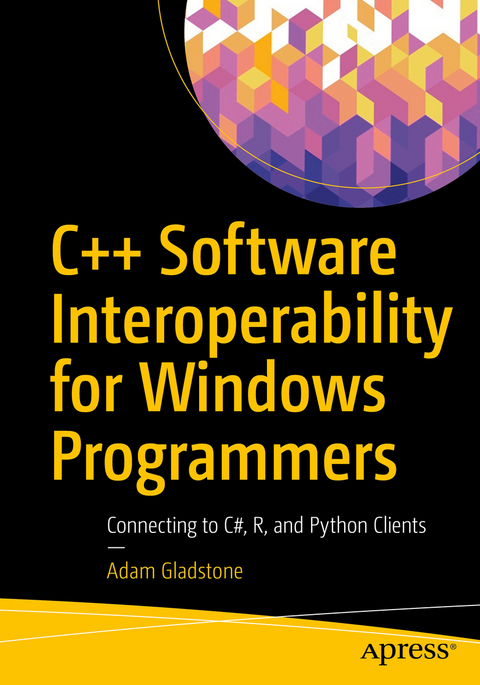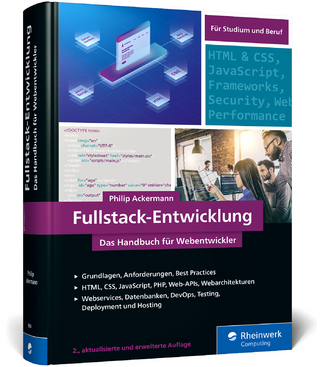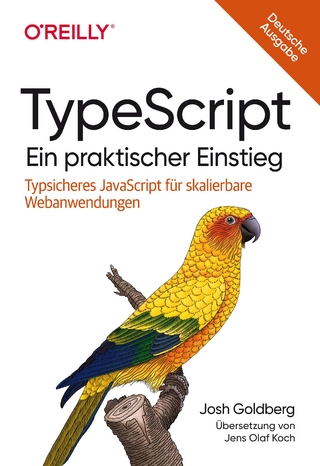
C++ Software Interoperability for Windows Programmers
Apress (Verlag)
978-1-4842-7965-6 (ISBN)
This book addresses a fundamental question in software design: given an existing C++ codebase, how does one go about connecting that codebase to clients written in C#, R, and Python? How is the C++ functionality exposed to these clients? One answer may be to rewrite the existing codebase in the target language. This is rarely, if ever, feasible and this book’s goal is to save you the pain and the high costof throwing out valuable existing code by showing you how to make that older code function alongside and with the more modern languages that are commonly in use today. The knowledge you will gain from reading this book will help you broaden your architectural choices and take advantage of the growing amount of talent around newer languages.
What You Will Learn
Build components that connect C++ to other languages
Translate between the C++ type system and the type systems of C#, R, and Python
Write a managed assembly targeting the .NET framework
Create C++ packages for use in R/Studio
Develop Python modules based on high-performance C++ code
Overcome the difficulties and pitfalls involved in cross-language development
Who This Book Is For
Software developers who are looking for ways to extend existing systems written in C++ usingmodern languages. Readers should have some programming experience, particularly in C++. Readers should also be familiar with common development tools such as Visual Studio, R/Studio, Visual Studio Code, and CodeBlocks.
Adam Gladstone is a software developer with more than 20 years of experience in investment banking, building software mostly in C++ and C#. For the last few years, he has been developing data science and machine learning skills, particularly in Python and R after completing a degree in Math & Statistics. He currently works at Virtu Financial Inc. in Madrid as an Analyst Programmer. In his free time, he develops tools for natural language processing.
Part I: Foundations.- Chapter 1: Preliminaries (ch01.docx).- Chapter 2: C++ Components and C++ Clients (ch02.docx).- Part II: C++/CLI and .NET.- Chapter 3: Building a C++/CLI Wrapper (ch03.docx). Chapter 4: C# Clients: Consuming the Managed Wrapper (ch04.docx).- Part III: R and Rcpp.- Chapter 5 Building an R Package (ch05.docx).- Chapter 6 Exposing Functions using Rcpp (ch06.docx).- Part IV Python.- Chapter 7 Building a Python Extension Module (ch07.docx).- Chapter 8 Module Development with Boost.Python and PyBind (ch08.docx).- Chapter 9 Conclusion (ch09.docx).- Appendix 1 Boost Libraries (app01.docx).- Appendix 2 CMake (app02.docx).
| Erscheinungsdatum | 18.02.2022 |
|---|---|
| Zusatzinfo | 122 Illustrations, black and white; XIX, 225 p. 122 illus. |
| Verlagsort | Berkley |
| Sprache | englisch |
| Maße | 178 x 254 mm |
| Themenwelt | Mathematik / Informatik ► Informatik ► Programmiersprachen / -werkzeuge |
| Mathematik / Informatik ► Informatik ► Software Entwicklung | |
| Schlagworte | C# • C++ • CLI Wrappers • Interop • pyBind • Python • R and C++ Integration • R language • RStudio • software interoperability • Standard Template Library (STL) • Type Conversions • Visual Studio • vscode |
| ISBN-10 | 1-4842-7965-4 / 1484279654 |
| ISBN-13 | 978-1-4842-7965-6 / 9781484279656 |
| Zustand | Neuware |
| Informationen gemäß Produktsicherheitsverordnung (GPSR) | |
| Haben Sie eine Frage zum Produkt? |
aus dem Bereich


